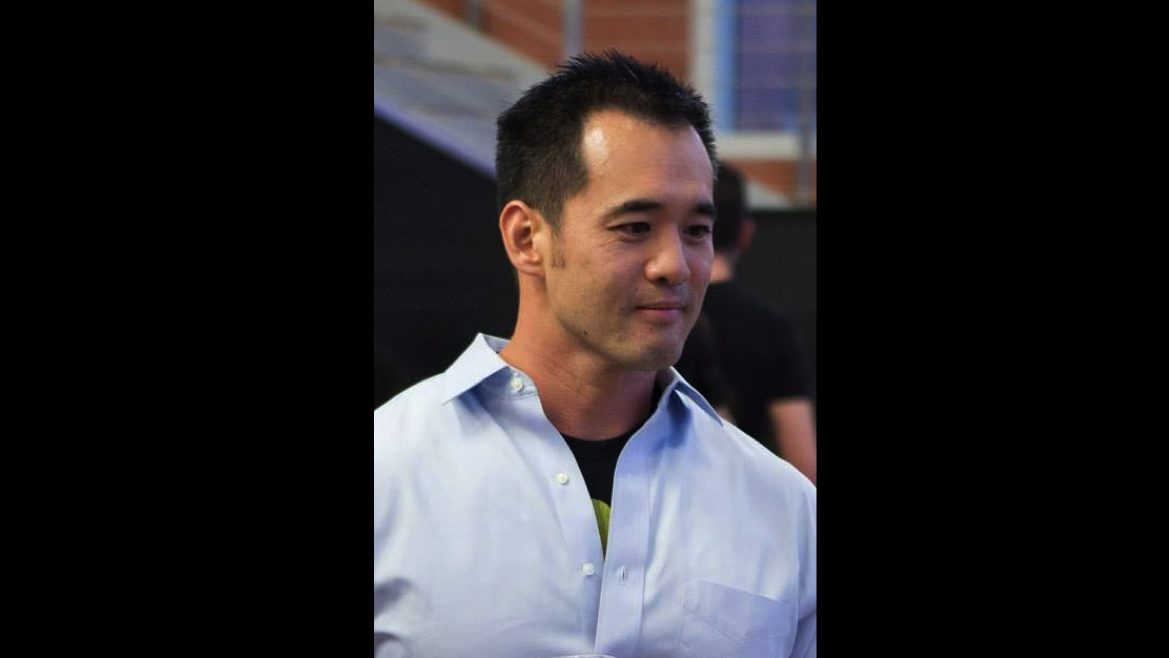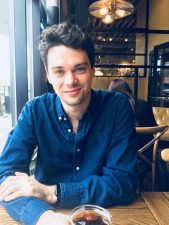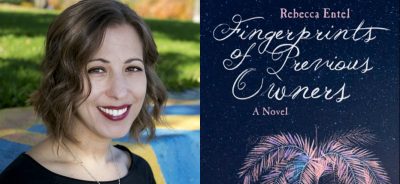Catapult Books
A Conversation With PEN America Best Debut Short Stories 2018 Author Ernie Wang
“I feel any person who has to deal with losing the one person who is their world has every right to do whatever it takes to self-preserve, even when that includes deflection and denial.”
On August 21, Catapult published PEN America Best Debut Short Stories 2018 , the second edition of an anthology celebrating outstanding new fiction writers published by literary magazines around the world. In the upcoming weeks, we’ll feature Q&As with the contributors, whose stories were selected for PEN’s Robert J. Dau Short Story Prize for Emerging Writers and for the anthology by judges Jodi Angel, Lesley Nneka Arimah, and Alexandra Kleeman. “Stay Brave, My Hercules” is narrated by a Disney employee who dresses up as Hercules while his partner is dying from cancer back at home.
*
Ernie Wang resides in Las Vegas. He received his MFA in fiction from the University of Nevada, Las Vegas. His work is forthcoming in The Threepenny Review and Passages North .
*
There’s a tug on my skirt. I look down. “Hi there, young fella,” I say. “Hercules,” he says.
I nod.
“I have a question,” he says.
“Go on then, young man.”
“Hercules,” he says. “How do I become strong like you?”
I look at his parents. They beam at their son and smile like they already know.
We’re at the corner of Frontierland and Fantasyland. From a distance, I hear screams at the top of Splash Mountain and calliope music from the riverboat making its way downstream. The smells of butter popcorn and churros wafting through the muggy afternoon air remind me that I’m hungry and I’ll be on my break soon.
In the far corner, I see Buzz and Woody ham it up for a large Chinese tour group. Cameras click, and the tourists point and shout furiously at them. Buzz and Woody take it in stride and swivel randomly and wave enthusiastically and do this jiggy kind of dance. Today, Zac is Buzz. He’s a good dude. He sees me, and without turning from the tourists, he lowers his arm and flips me the middle finger.
I kneel down and clasp the kid’s hands. He stands straight and puffs out his chest. I no longer have to think back to the script. I got this shit on lock.
*
Where did you find the idea for this story?
In the 1980s, my friend and fellow military brat was one of twelve rotating Peter Pans for the Tokyo Disneyland Electrical Parade. He assured us that all was not what it seemed, while we couldn’t get past how much he got paid, him being one of the few blue-eyed 15-year-olds in Japan. Decades later, having adopted my friend’s words as a kind of life and writing motto, and this time at Disneyland in Anaheim, I noticed that while the cast members wore smiles and sunny dispositions, many of the tourists were very grumpy. My dark imagination kind of took over at that point, and as I was then in my first semester in UNLV’s MFA program, I wrote the opening scene after I drove back to Las Vegas.
Early on in the story, the narrator says about his job at Disney World, “It’s all about staying on script and running and evading. I am a born natural at that,” but by the end of the story, he’s taking Cody from Make-A-Wish on Peter Pan’s flight “script be damned.” In what way does the narrator’s private life (we know that his partner is dying of cancer back at home) influence how he views and behaves at his job, and vice versa?
I feel the narrator’s inability to accept reality at home is the primary reason for why he is so motivated to act courageously and with agency at Disney World. He’s a good kid, and while in costume he’s likely to say and do the right things anyway, but because he knows he’s putting off the important things and truths at home, and also because he knows he can’t save his partner, his work becomes his outlet and the place where he can display the courage he cannot display at home. I suppose it’s telling that it’s only in a park built on fantasy and talking animals and seasonal churros that he can be brave. I can’t blame him, though. I feel any person who has to deal with losing the one person who is their world has every right to do whatever it takes to self-preserve, even when that includes deflection and denial.
This is such a funny, upbeat story even in its most tragic or heartbreaking moments. How do you navigate this as a writer, and maintain a level of seriousness and depth while also cracking jokes and keeping the voice casual and light?
I feel it’s expected that we get overwhelmed and paralyzed when faced with tragedy, and yet there are those I’ve come across who gather the fortitude to keep one eye on the future, one in which the storm has passed. I’ve always deeply admired those who choose their reactions and decisions based off this foresight. I myself am definitely not capable of that, but oftentimes when I write fiction, I write in the person I always wished I was, and in my Disney World, I could face terrible things and still smile and deliver the best jokes to a surprised and appreciative crowd, and so I think that was my motivation when writing this story and trying to navigate the somewhat fine line between really depressing topics and appropriate levity.
How long did it take you to write this story?
Three and a half years. I started with just the one scene and with no idea or plan of what was to follow, and so this story went through many iterations before it ended where it did. The first draft was a story about the protagonist coming home to prevent his suicidal mother from offing herself, and her final words, in a dramatic hand-written note, was to “Stay brave, my Hercules”. I’d since killed her off—I guess she was doomed no matter what—but I never bothered to change the story title, but I suppose the theme never changed either, and so the title stayed relevant. Perhaps, the story was there all along, and I just didn’t know it.
How has the Robert J. Dau Prize affected you?
The Robert J. Dau Prize has given me confidence when I most needed it. I cannot thank the Dau Family, PEN America, Jodi, Lesley, and Alexandra, Catapult, and the zany folks at McSweeney’s enough for believing in me when I couldn’t. I truly had no idea, coming in, that writing—trying to write—would be this painful and annoying, and receiving this recognition has helped so much in countering the days when I feel like an imposter and a tragedy. I want to give back by living up to the potential they see in me, and so that one day, I too can give writers the courage to believe in themselves.
What are you working on now?
I’m having a lot of fun exploring stories with hyper-masculine protagonists who become the punchline or are taken down several notches: the male stripper who is not very good at stripping, the club bouncer who is not intimidating at all. I’ve entered bodybuilding contests in the past, which I was never very good at, but living in that esoteric world provided me with orchestra seats to observing the absurdity and hilarity that can result when unfettered, oiled-up hyper-masculinity is rewarded with large trophies. I’ll never get that trophy, but if I could get a couple of stories from this, it’ll be totally worth it.
Finally, where do you discover new writing?
With regards to discovering others’ new writing: social media, book reviews, journal subscriptions, and word-of-mouth have all led me to discovering fantastic writers and writing. Also, I’ve been reading submissions for Black Mountain Institute’s Witness magazine for four years, and I’ll sometimes come across a story so gorgeous that I’ll google the author in hopes of discovering more of their writing. Oftentimes, this eventually leads to their online publications, which are usually just as beautiful. I absolutely love discovering new writing and writers this way. It’s like my own literary journal treasure hunt.
With regards to how I discover my own writing: when I’m alone in public, which is often, my mind tends to wander down dark and comedic paths. Sometimes I’ll laugh out loud with the strange things I come up with. Sometimes, that night, from these things I’ll write a scene, or a fragment of a scene, and sometimes, even more rarely, that scene comes to life and takes off, and then I just try to hang on and capture as much of that story as I can before I wake up and lose the rest of the dream forever.







